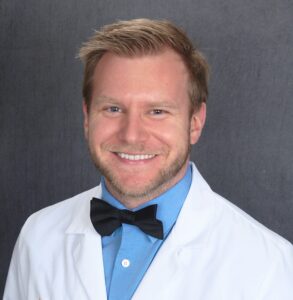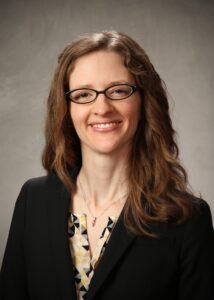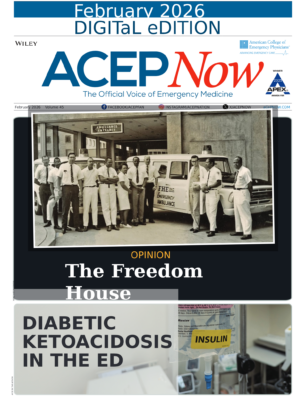When American Physician Partners (APP) of Brentwood, Tenn., one of the country’s largest physician staffing firms, announced on July 17 through an email to its employees its intention to cease operations July 31, the chilling effects were felt across a workforce of 2,500 APP-employed physicians and advanced practice clinicians working at the 153 hospital emergency departments it managed in 18 states.
Explore This Issue
ACEP Now: Vol 42 – No 09 – September 2023Would they be paid for work already performed? Would they continue to have jobs and essential malpractice tail coverage for claims filed after their policies expired? Would the entities rushing in to replace APP treat them fairly? The closure has also raised questions about the model of large, distant corporations—particularly those backed by private equity investors—employing and managing doctors who provide lifesaving emergency medicine in local hospitals across the country.
Matthew Bombard, DO, FACEP, FAAEM, medical director for emergency medicine at Ascension Borgess-Pitt Hospital in Plainwell, Mich., was working the 4:30 p.m. to 1 a.m. shift on July 31 when the hospital’s emergency coverage transitioned from APP to Vituity. “At midnight, I crossed over to my new medical group. And you know, we were one of the fortunate places, able to maintain 24-7 emergency medicine coverage without skipping a beat,” he said.

Dr. Bombard
“But we were scrambling to get new docs signed up with our new group so we would not be in a situation where a different doc would have to come in at midnight and take over for a doc that did not sign. It was a real concern, as not all our docs signed on to our new group. That, fortunately, did not happen, and we had no lapses in care,” he said. “But we were all so focused on getting the transition done and completing the onboarding that it was a distraction.”
What Were the Issues?
It’s fair to call what happened to APP multifactorial, said Diana Nordlund, DO, JD, FACEP, Compliance Officer and ED physician with Emergency Care Specialists, a Grand Rapids, Mich.,-based independent, equal-ownership, physician-led and -governed practice staffing more than 15 emergency departments. She is also a practicing attorney. “I think it’s not just a reflection of one particular business’ practices, since it’s not the first situation we’ve seen this year of a large contract management group that staffs emergency departments making financial restructuring decisions because of budgetary issues,” she said. A similar company, Envision Healthcare, filed for Chapter 11 bankruptcy in May. APP was facing inflationary pressures and declining physician reimbursement, with a significant debt burden amassed from its acquisitions of medical practices. Added to the mix were the effects of the COVID pandemic and unintended consequences from the 2022 No Surprises Act on physician revenues. APP had previously, unsuccessfully, tried to obtain refinancing and, more recently, a deal with the physician staffing firm SCP Health with a loan payment looming. Its email to employees cited the lack of liquidity to continue operations.

Dr. Nordlund
At least eight other medical staffing firms, including Vituity, U.S. Acute Care Solutions and TeamHealth, jumped into the void created by APP’s liquidation to take on hospital emergency department contracts.
“It’s a shame to read about what is happening to American Physician Partners,” Rep. Mark Green (D-TN), MD, told ACEP Now in a prepared statement. Rep. Green founded the ED staffing company Align MD and later sold it to APP. “I am proud of my time leading Align MD, where we had one of the lowest turnover rates in the industry because of how we treated our providers.”
Impact on ER Doctors
Nathan Whelham, MD, an attending physician working in the emergency departments of Ascension Borgess hospitals in Kalamazoo, Plainwell, and Dowagiac, Mich., told ACEP Now in an August 8 email that he still does not know if he will get paid for the work he performed in July, although at least he knows who is managing the EDs he and his colleagues are responsible for covering.
“Vituity, our new physicians group, said that it would provide us with a two-year loan to cover the lost wages as well as to pay for our tail coverage,” he said. “We have heard absolutely nothing about that from APP, and our site directors have no idea as to what APP will pay in terms of payroll.”
Dr. Whelham emphasized that in the two weeks following APP’s July 17 announcement, “when we were working and doubtful as to being paid or covered in terms of legal protection, both the emergency physicians and advanced practice providers came to work and provided excellent care. We did not shrink back from our calling to serve our communities and those in need.”
Dr. Bombard estimated that he worked 20 shifts in July and was owed more than $50,000 through incentives to work additional hours. “We were all relieved to find out that we would be paid on August 15, but without much warning or update (by APP),” he said. “If APP intended to pay us all along for July, it could have saved a lot of ‘what ifs’ and sleepless nights.”
Dr. Bombard said that when he first heard he might not have tail coverage for the period leading up to July 31, “of course you start thinking about those cases where you may have questioned yourself. It certainly made me practice a little more conservatively in early August,” he said. “When people are hurting like this, when they don’t know if they’re going to get paid or their insurance is not going to be covered, they have a lot of fear.”
Knowing Their Rights
Christopher Kang, MD, FACEP, ACEP’s President, said the College has offered support to its members during the painful transition. As of August 1, he said, “The lion’s share of APP hospitals had implemented alternative arrangements. A good number said they would take over physicians’ tail coverage and pay back salaries. But people are still anxious and frustrated,” Dr. Kang said.
“ACEP’s foremost duty is to help our members in a time of need. We want to be sure we educate our individual members so they know their rights,” including who will have the right to collect the fees for physician services already rendered,” he said. “We’ve sent multiple communications to members.”
ACEP hosted a large-scale webinar on these questions, and is planning another. It developed and updated its online resources and opened a bulletin board for doctors impacted by the closure to report their circumstances, including a crowdsourcing spreadsheet listing the status at affected hospitals. Its member services include three free counseling sessions with its Wellness & Assistance Program and resources for helping with the formation of independent medical groups—even how to negotiate better agreements and how to read an employment contract.
“We’re talking to legal and financial experts and are waiting to fully see the fallout,” Dr. Kang said. Down the line, ACEP will be looking at how to make sure this kind of situation doesn’t happen again.
“Emergency physicians should never be expected to work without pay, medical malpractice insurance or guaranteed tail coverage,” Ashley Huff, MD, FACEP, FAEMS, an emergency physician in Clarksville, Tenn., said in an August 15 email to ACEP Now. “Many emergency physicians across the American Physician Partners footprint were left to advocate for themselves and their local group of physicians when APP closed.”
Dr. Huff considers herself fortunate since her health care company, Community Health Systems, took over employment contracts for two weeks and paid the doctors for the month of July before inviting them to sign with Team-Health. Given the recent history with APP and Envision, she thinks private equity staffing companies should set aside money or have written agreements specifically for tail coverage in the event that the company fails.
Spurring Introspection
For the field of emergency medicine, these developments are likely to spur some introspection, Dr. Nordlund said. “Certainly, there’s been discussion of reinvigorating the independent, physician owned and operated group, and looking again at the hospital-employed model. As emergency physicians, to a significant degree, we’re invested in responding to problems and delivering care to everyone who needs it, regardless of the ability to pay. We’re open all the time; we take everybody.”
She thinks it’s a mistake to overlook how important that service is to America. “The emergency department truly is an integral part of our health care system.” She also thinks the shockwave from the APP debacle will trigger a lot of attention about the instability of corporate management models and private equity in health care. “Are we going to see, now, more of these collapses? What does that mean to how we deliver care in our nation?”
Most importantly, how do these recent corporate failures impact patients? “That, ultimately, is the point of what we do,” Dr. Nordlund said. “How do we deliver a model that provides stability for our physicians, since that also provides stability for our patients? Physicians who are not wondering if they’re going to have a job next week or receive payment for the work they did last week can better focus on the business of delivering patient care.”
 Larry Beresford is a freelance medical journalist based in Oakland, Calif., with a specialty in hospice and palliative care and thorough experience covering hospital medicine.
Larry Beresford is a freelance medical journalist based in Oakland, Calif., with a specialty in hospice and palliative care and thorough experience covering hospital medicine.




No Responses to “American Physican Partners’ Closing Raises Questions”